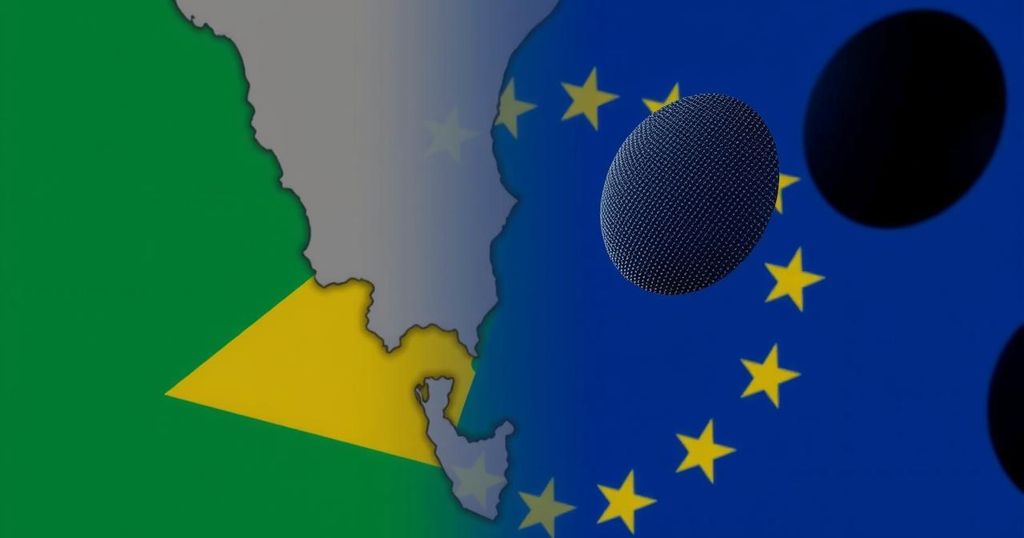EU Observers Report Allegations of Electoral Manipulation in Mozambique Elections
The European Union has reported possible manipulation of election results in Mozambique amid unrest following the deaths of opposition figures attributed to security forces. Venâncio Mondlane leads protests, calling for transparency in elections as incidents of voter manipulation and intimidation have been reported. Amid rising tensions, further demonstrations are planned, and there is increasing pressure on authorities for justice regarding the killings.
The European Union (EU) election observers have expressed concerns regarding the integrity of the recent electoral process in Mozambique, alleging that numerous voting results were manipulated. This claim arises amidst increasing unrest in the nation, following significant opposition protests initiated by independent presidential candidate Venâncio Mondlane, who attributes the violent deaths of his lawyer, Elvino Dias, and another political figure, Paulo Guambe, to the actions of security forces—an assertion the authorities deny. The EU election observation mission, in a statement, has cited the presence of irregularities during the counting of ballots and significant alterations in official results at various local levels. They are now calling for a transparent and credible tabulation process to be undertaken by the electoral bodies, ensuring every result can be adequately traced. Reports from the International Republican Institute indicate further issues such as vote-buying, inflated voter rolls in regions dominated by the ruling Frelimo party, and instances of voter intimidation. While official election results from the October 9 general elections are scheduled to be published by Friday, the process has been complicated by a cyberattack that has rendered the electoral commission’s website inactive. Mondlane, who has received support from the opposing Podemos party, has declared victory and describes the killings of his associates as politically motivated crimes perpetrated by the defense and security forces. His calls for protests have gained momentum, resulting in violent confrontations with police in the capital, Maputo, where security forces employed live ammunition, tear gas, and other means to disperse crowds. Demonstrations have spread to cities such as Beira and Nampula, leading to numerous arrests and casualties. Commercial activities faced temporary suspension as businesses closed in response to the unrest, although operations began normalizing the following day. The funeral for Dias is expected to take place soon, with Mondlane initiating further protests over the coming days. As condemnation from various figures—including former President Armando Guebuza, the UN, the US, and the EU—grows, there is an escalating demand for justice regarding the recent killings. Prominent Mozambican author Mia Couto has condemned the violence as a “crime against the nation.” Mozambique, which has been under the governance of the Frelimo party since its independence from Portugal, is poised for a leadership change as President Filipe Nyusi will not seek reelection. The Frelimo candidate is Daniel Chapo, who faces opposition from Mondlane, former rebel leader Ossufo Momade, and Lutero Simango from the Mozambique Democratic Movement.
The context of this situation denotes a critical phase in Mozambique’s political landscape, characterized by a history of electoral challenges and long-standing governance by the Frelimo party since the nation’s independence in 1975. The recent elections were seen as potentially transformative due to term limits imposed on the current president. The allegations of electoral fraud emerge against a backdrop of social unrest, accusations of violence against political figures, and a rising opposition movement led by candidates advocating for transparency and democratic reforms.
In conclusion, the allegations of electoral fraud in Mozambique, as reported by the EU, coincide with growing civil unrest and claims of political assassinations attributed to the security forces. The opposition, led by Venâncio Mondlane, is actively mobilizing in response to these developments, advocating for accountability and transparency in the electoral process. The overall situation remains fluid as Mozambicans seek justice for the recent violence and prepare for potential changes in leadership.
Original Source: www.bbc.com




Post Comment